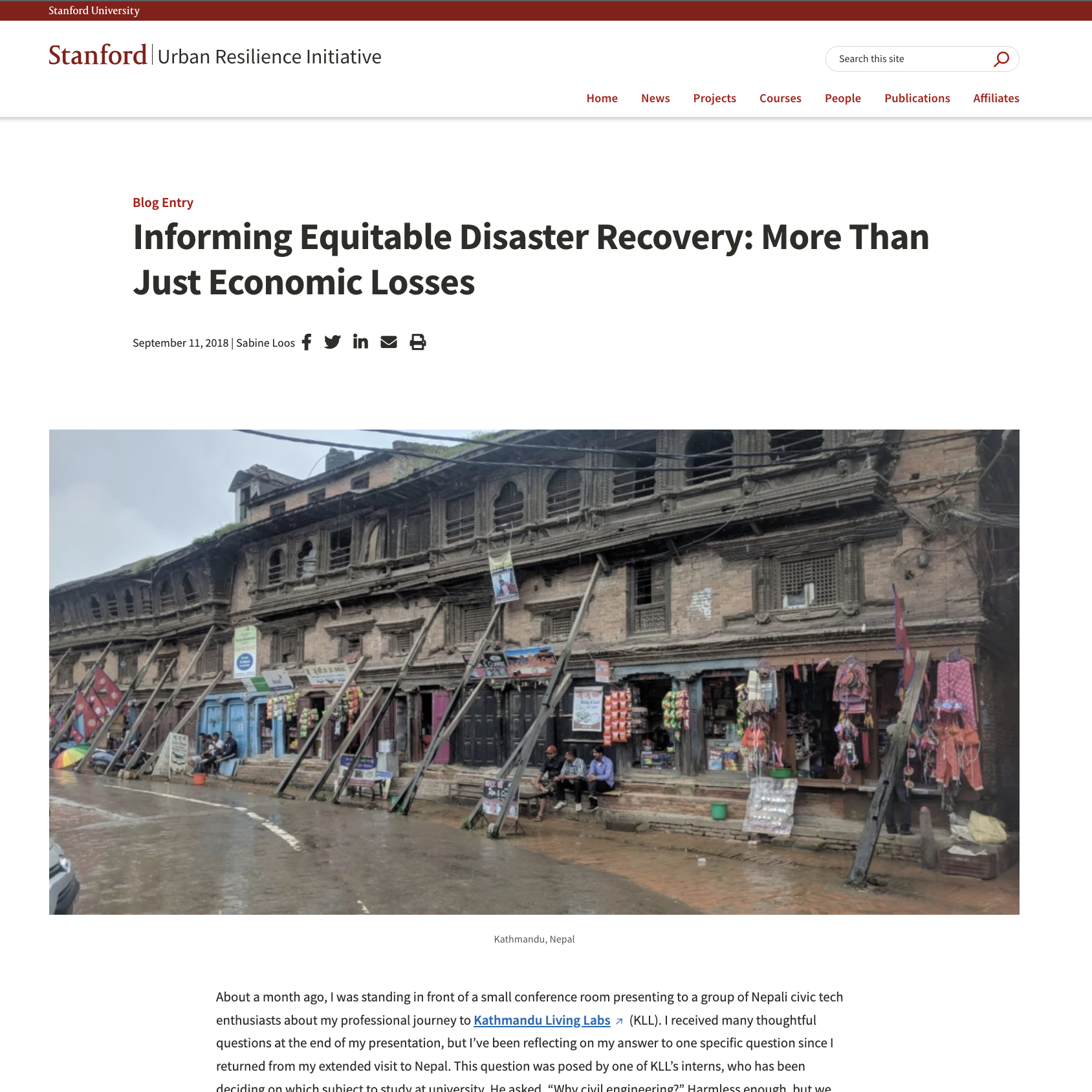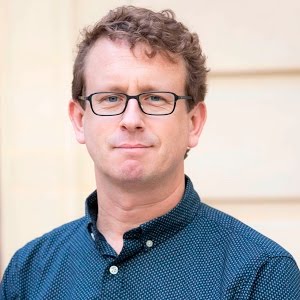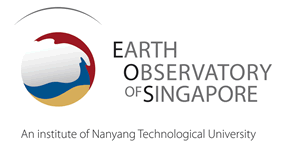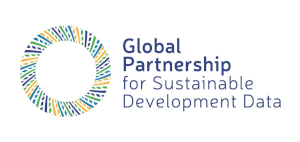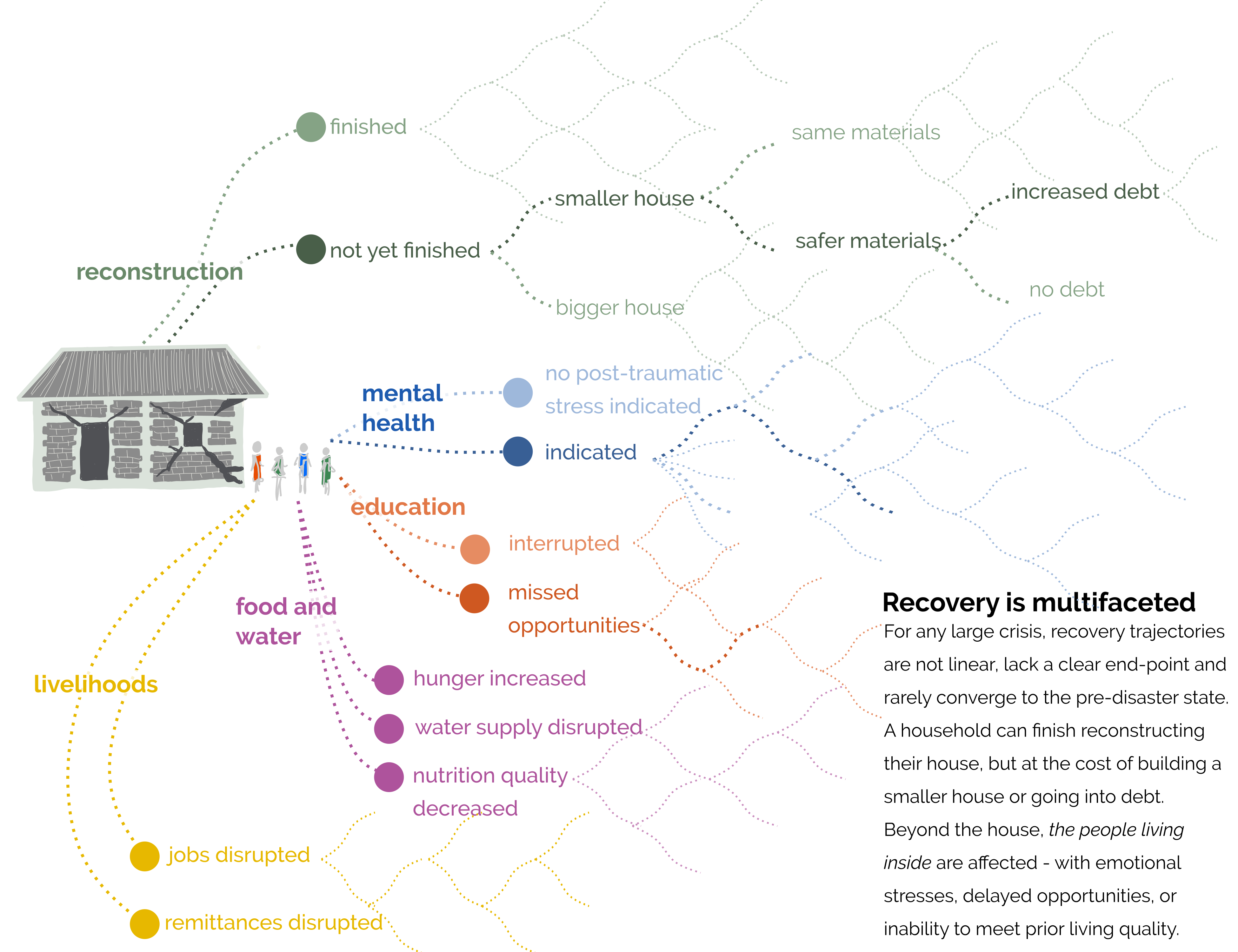
Informatics for Equitable Recovery is a transdisciplinary research collaboration that brings together data scientists, engineers, social scientists and civic organizations to improve post-disaster information systems and decision support tools. Example use cases for these information systems include post-disaster needs assessments (PDNAs) and recovery aid policy design.
After the 2015 Gorkha earthquake in Nepal, the need for holistic post-disaster information systems became even clearer. We developed novel methods combining spatial statistics, field surveys, social science, and machine learning models to develop rapid damage and need estimates that reflect the different ways that disaster impacts are felt by communities and enable these estimates to be used meaningfully in the recovery process. We also evaluated long-term household recovery outcomes as they relate post-disaster recovery policies put in place after the 2015 earthquake.
Project content
Post-disaster data overwhelmingly focuses on immediate impacts on buildings rather than the long-term needs of populations who live inside those buildings. As shown in this study of the 2015 earthquake in Nepal, data can instead be leveraged to capture the recovery needs of vulnerable populations.
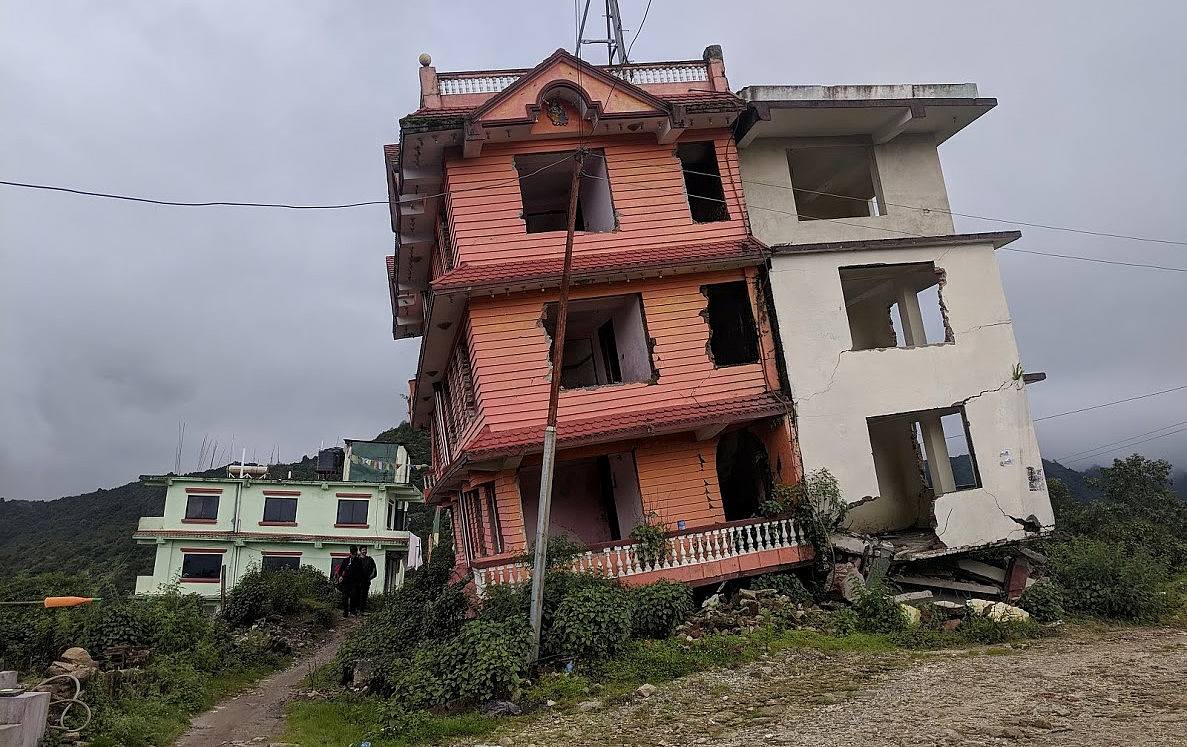
Big data for whom? Data-driven estimates to prioritize the recovery needs of vulnerable populations after a disaster
Going beyond building damage to support vulnerable populations' recovery needs after a disaster.
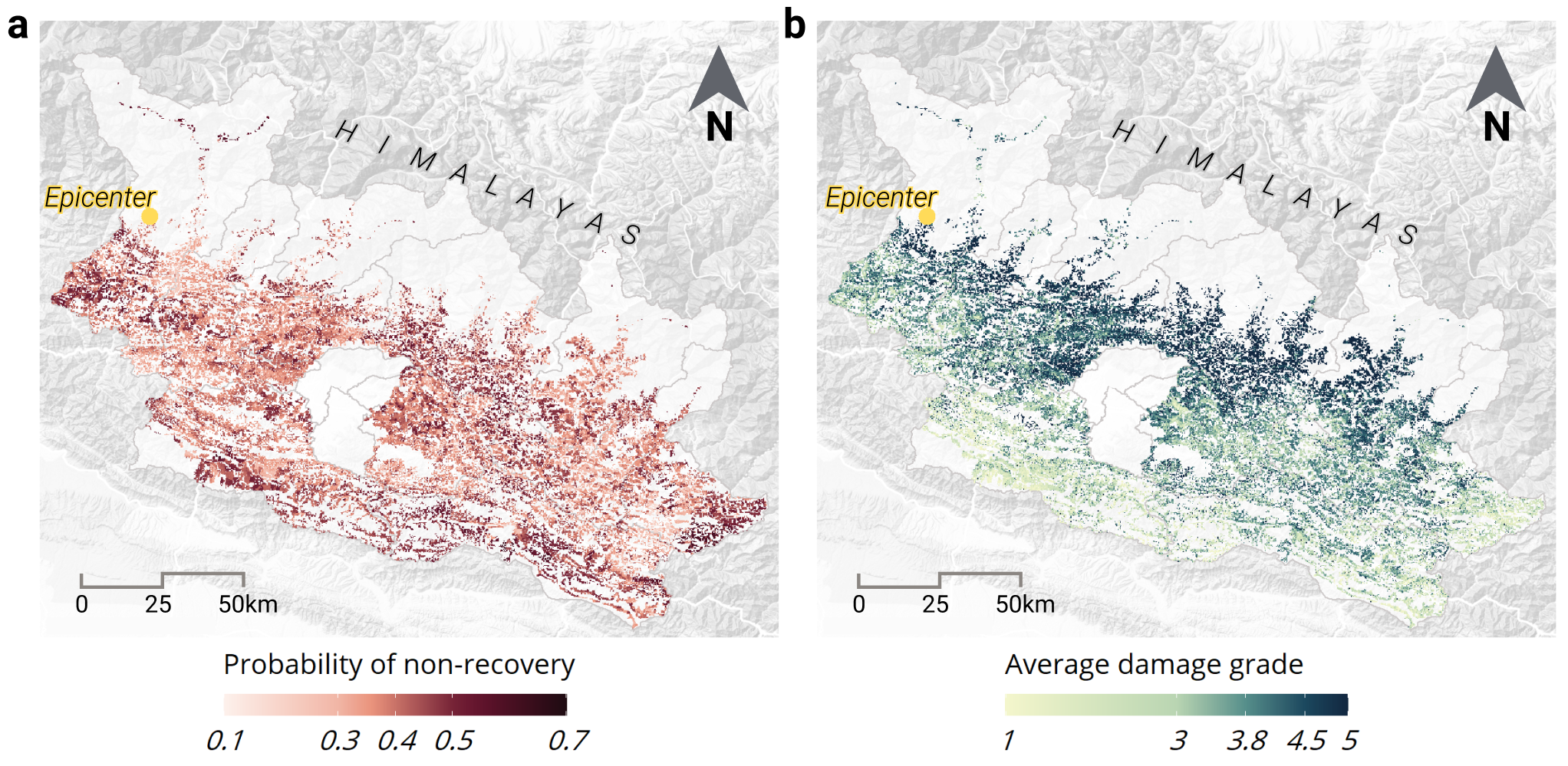
A data-driven approach to rapidly estimate recovery potential to go beyond building damage after disasters
In this talk, Sabine presents on three main examples of designing earthquake information to be more actionable by centering user needs and more equitable by prioritizing vulnerable populations.
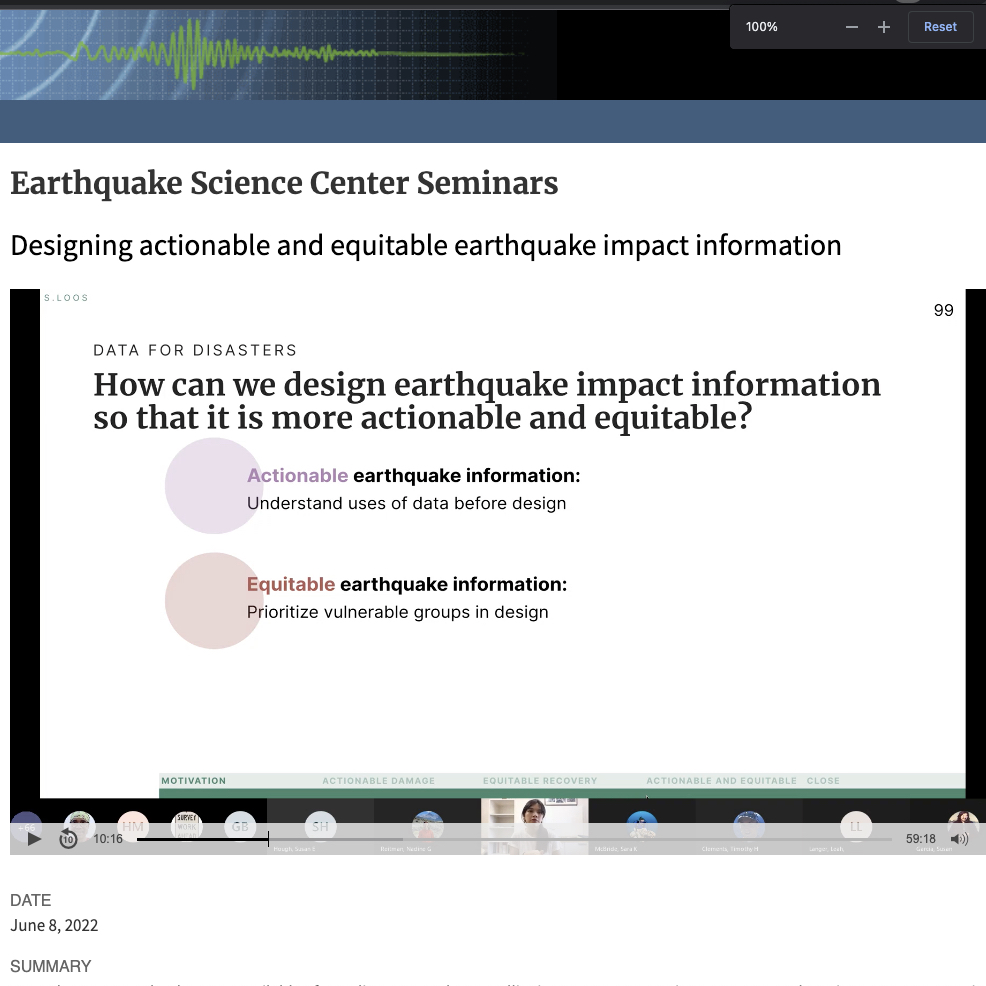
Designing actionable and equitable earthquake impact information
An overview of the project for supporting equitable recovery through impact assessments.
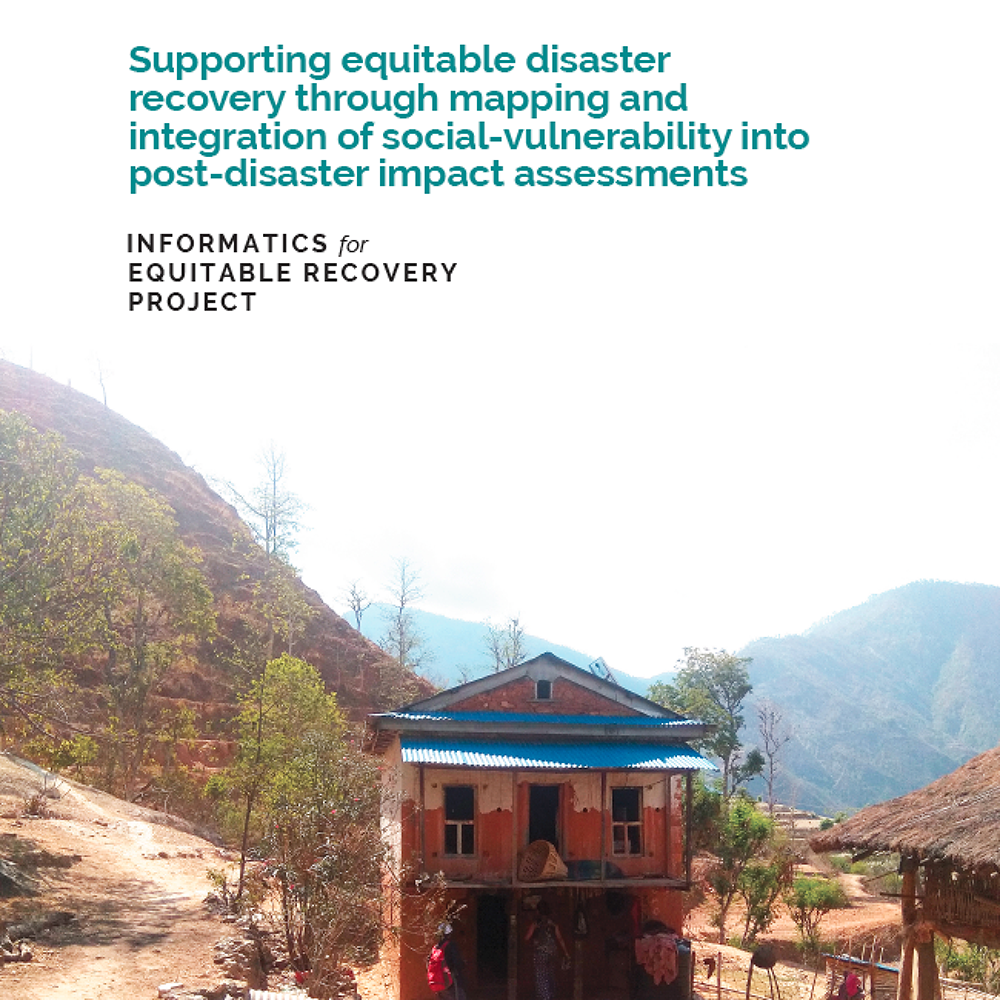
Informatics for equitable recovery: supporting equitable disaster recovery through mapping and integration of social vulnerability into post-disaster impact assessments
A framework that employs geostatistical methods to combine multiple sources of building damage data into one estimate.
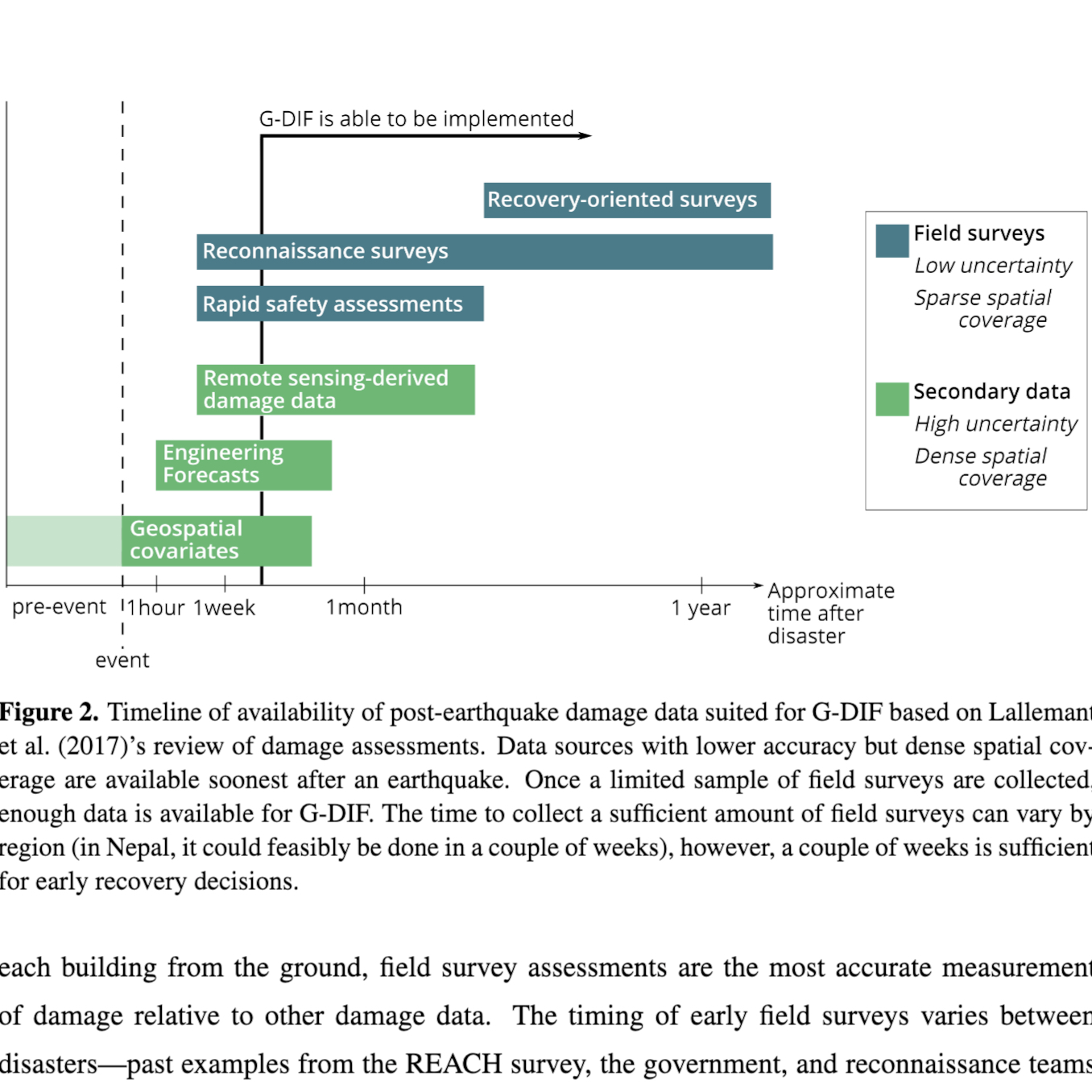
G-DIF: A Geospatial Data Integration Framework to Rapidly Estimate Post-Earthquake Damage
The Asia-Pacific region is an exciting opportunity for transdisciplinary work, because the research space is still rapidly growing and forming, the region is traditionally less data-rich, which inspires more creative data collection and data use; meanwhile, the hazards are numerous and the risks rapidly evolving due to population growth and climate change, and requires the need to balance development with disaster risk reduction.
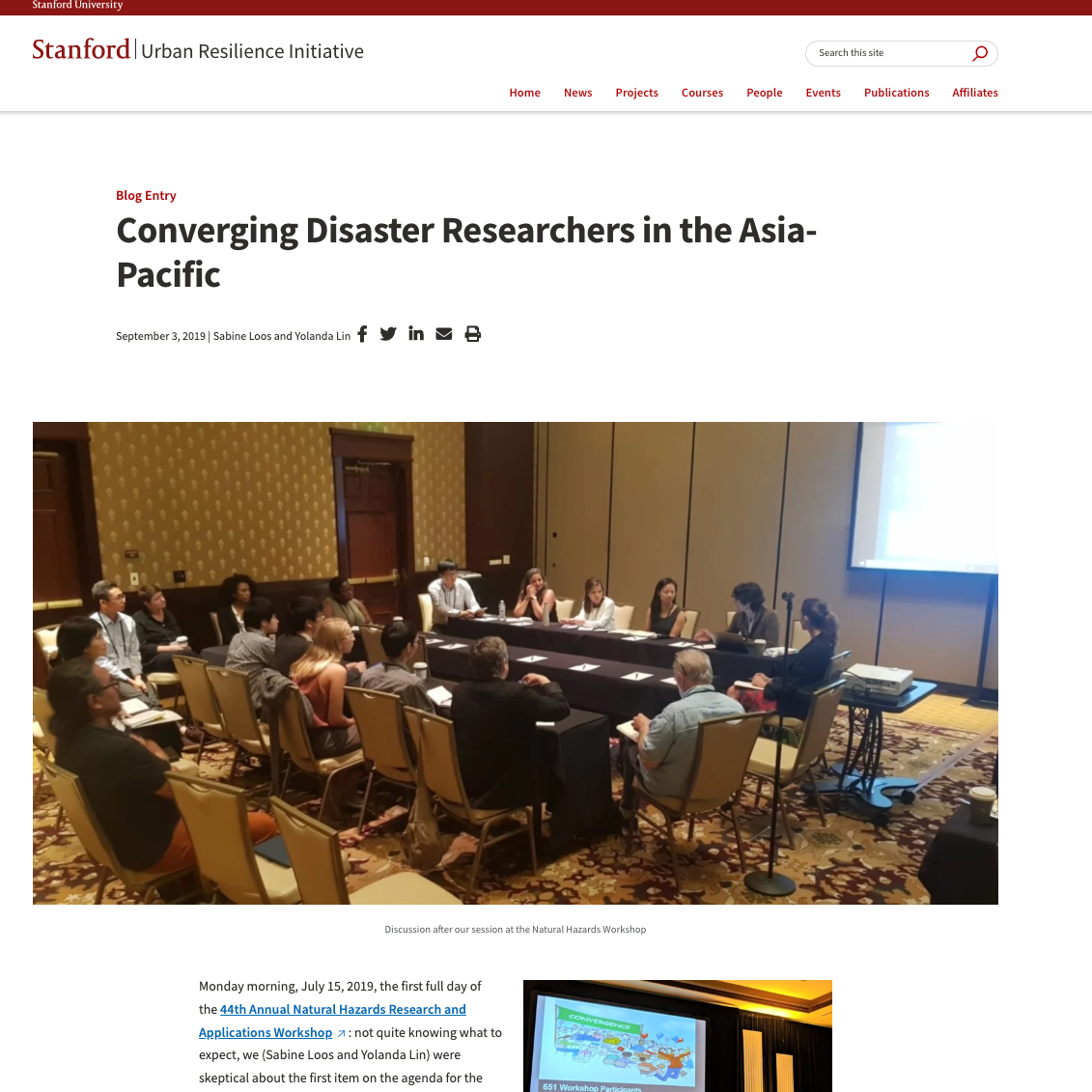
Converging Disaster Researchers in the Asia Pacific
Exploring the impacts and reconstruction of the 2015 Gorkha earthquake.
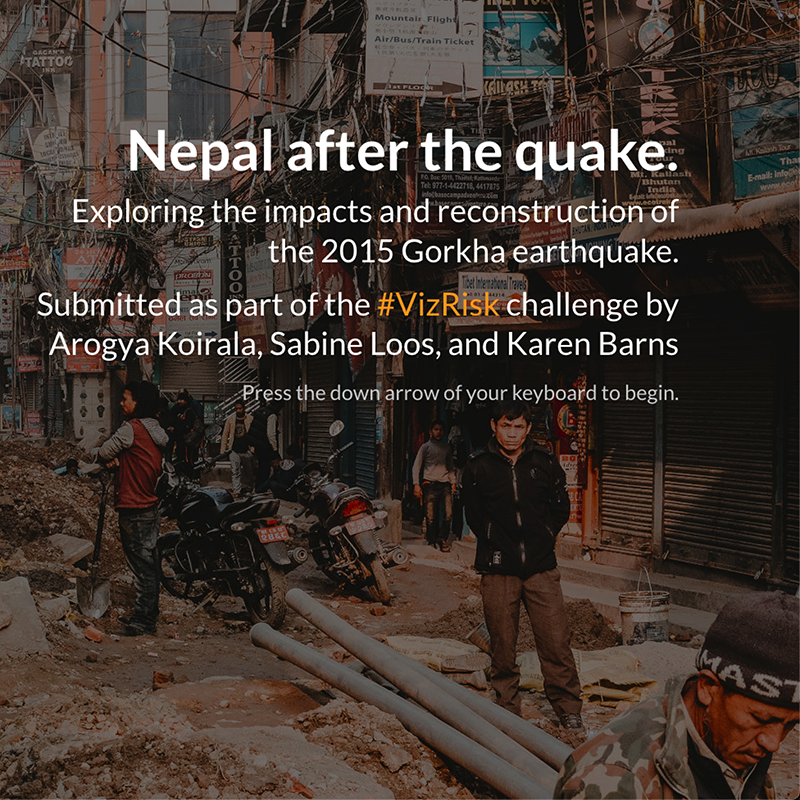
Nepal after the quake.
Sabine Loos presents on her research on the rapid integration of post-disaster data sources as a basis for impact estimation for recovery planning at our 2nd annual Geospatial Analysis for International Development (Geo4Dev) conference.
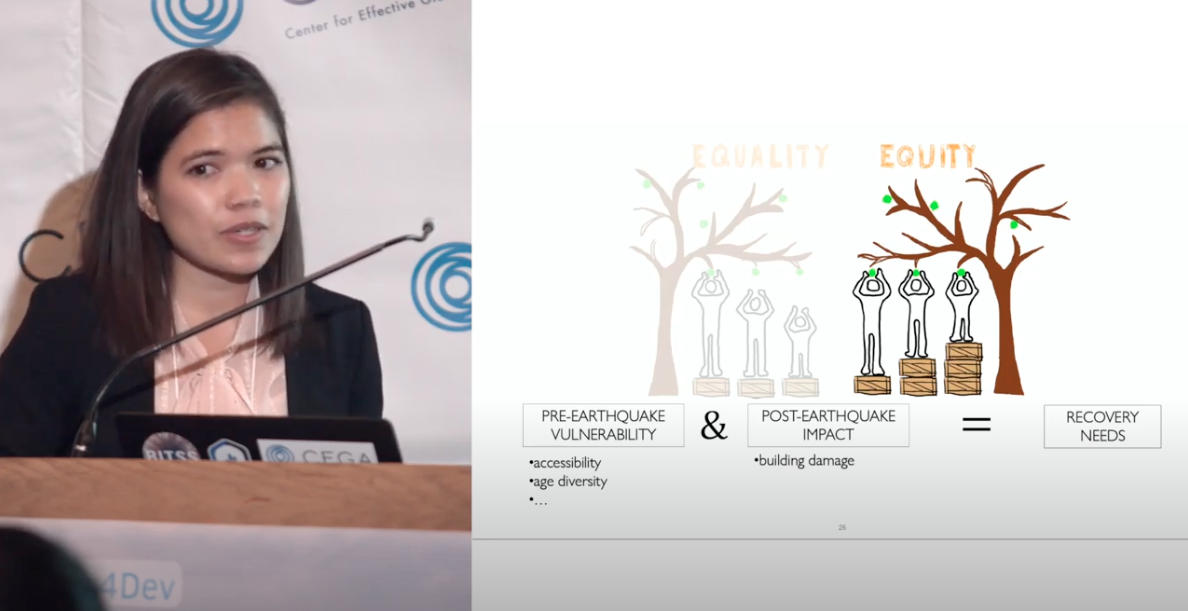
Rapid integration of post-disaster data sources - Sabine Loos
Why we need metrics other than economic losses for smart recovery decisions.
